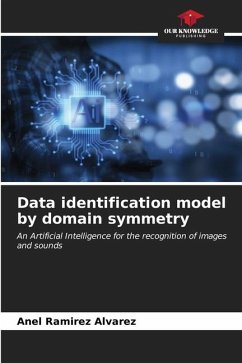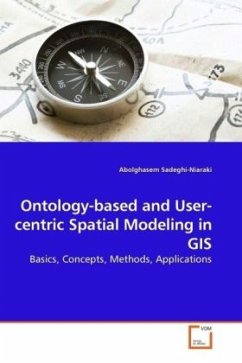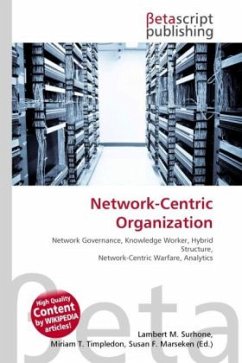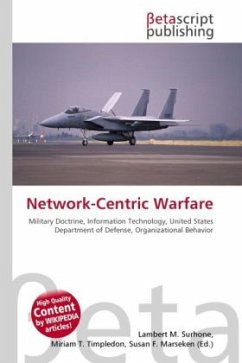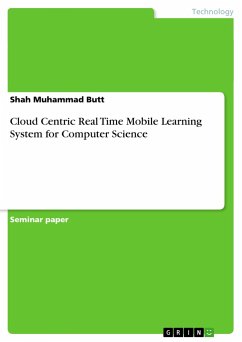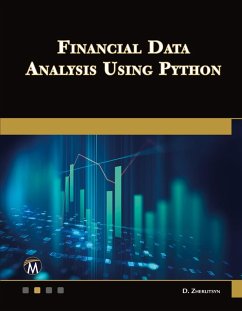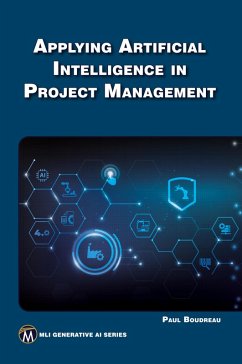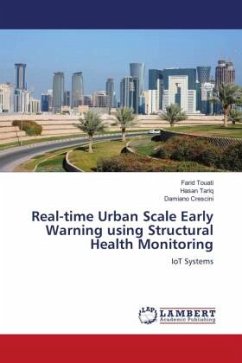Nicht lieferbar
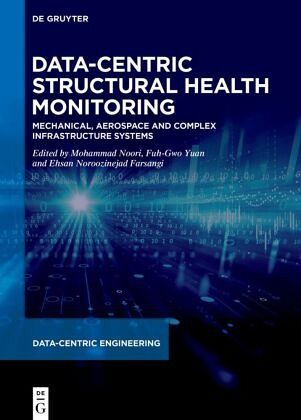
Gebundenes Buch
Data-Centric Structural Health Monitoring
Mechanical, Aerospace and Complex Infrastructure Systems
Herausgegeben: Noori, Mohammad; Yuan, Fuh-Gwo; Farsangi, Ehsan Noroozinejad
Versandkostenfrei!
Nicht lieferbar




This book introduces the latest developments in data-centric engineering, including different artificial intelligence and machine learning approaches, as well as their wide range of applications for long-term monitoring and health assessment of mechanical, aerospace and complex infrastructure systems. Leading scholars in the field demonstrate these emerging techniques assure the longevity of engineered systems and predict their life cycles.
Prof. Mohammad Noori has over 38 years of experience as an educator and scholar and currently serves is a professor of Mechanical Engineering at Cal Poly, San Luis Obispo, a Fellow and Life Member of the American Society of Mechanical Engineering and a recipient of the Japan Society for Promotion of Science Fellowship. His work in nonlinear random vibrations, especially hysteretic systems, in seismic isolation and application of artificial intelligence methods for structural health monitoring are widely cited. He has authored over 300 refereed papers, including over 160 journal articles, as an author and/or editor, has published over 30 scientific books, 31 book chapters in archival volumes, and has been the Guest editor of 15 journal volumes and proceedings. Noori was a co-founder of the National Institute of Aerospace, established through a $379 million 15-year NASA contract in partnership with NASA Langley Research Center. He has also received over $19 million in support of his research from NSF, ONR, National Sea Grant, and industry. He has supervised over 100 post-graduate research projects and has given over 90 keynote and invited talks and lectures. He is the founding executive editor of a scientific Journal, serves on the editorial board, or as the associate editor, of over 15 other journals, and has been a member of the scientific committee of numerous conferences. He directed the Sensors Program at the National Science Foundation in 2014, has been a distinguished visiting professor at several highly ranked universities in Europe and Asia, and serves as the scientific advisor for several organizations and technical firms. He was the dean of engineering at Cal Poly, and served as a Chaired professor and department head at NC State University and WPI and as the Chair of the national committee of mechanical engineering department heads. Noori has also a unique online course, How To Write An Effective Research Paper, offered by Udemy.com, taken by over 8,00 students world-wide. Noori is an elected member of Sigma Xi, Pi Tau Sigma, Chi-Epsilon, and Sigma Mu Epsilon honorary research societies. In 1996 Noori was invited by President Clinton's Special Commission on Critical Infrastructure Protection and presented a testimony as a national expert on that topic. Noori is the Founding Editor of Resilience and Sustainability in Civil, Mechanical, Aerospace and Manufacturing Engineering Systems Series of CRC Press/Taylor and Francis.
Email: mnoori@calpoly.edu
Prof. Fuh-Gwo Yuan has been with Department of Mechanical and Aerospace Engineering, North Carolina State University since 1989. He is now a Full Professor. Since 2011, he serves as a Samuel P. Langley Professor at National Institute of Aerospace (NIA), Hampton, Virginia. He received his B.S. from Department of Engineering Science, National Cheng Kung University, Taiwan, MS and Ph.D. from Department of Theoretical and Applied Mechanics, University of Illinois at Urbana-Champaign and worked at Boeing Co., Air Force Research Laboratory, and NASA Langley Research Center. He is a Fellow of SPIE and American Society of Mechanical Engineering. His recent research includes structural health monitoring/management (SHM), nondestructive inspection (NDI), machine learning, multi-functional materials, nano/meso scale sensors, advanced computing tools with smart sensors, damage prognosis, and energy harvesting. His research areas cover smart materials applications, wireless sensor design and energy harvesting. He has long-term interest in wavefield imaging for surface hidden damage by employing imaging algorithms in advanced structural materials. Recently, he has focused on non-contact full-field damage imaging using digital cameras together with physics-informed machine learning methods.
Email: yuan@ncsu.edu
Dr. Ehsan No
Email: mnoori@calpoly.edu
Prof. Fuh-Gwo Yuan has been with Department of Mechanical and Aerospace Engineering, North Carolina State University since 1989. He is now a Full Professor. Since 2011, he serves as a Samuel P. Langley Professor at National Institute of Aerospace (NIA), Hampton, Virginia. He received his B.S. from Department of Engineering Science, National Cheng Kung University, Taiwan, MS and Ph.D. from Department of Theoretical and Applied Mechanics, University of Illinois at Urbana-Champaign and worked at Boeing Co., Air Force Research Laboratory, and NASA Langley Research Center. He is a Fellow of SPIE and American Society of Mechanical Engineering. His recent research includes structural health monitoring/management (SHM), nondestructive inspection (NDI), machine learning, multi-functional materials, nano/meso scale sensors, advanced computing tools with smart sensors, damage prognosis, and energy harvesting. His research areas cover smart materials applications, wireless sensor design and energy harvesting. He has long-term interest in wavefield imaging for surface hidden damage by employing imaging algorithms in advanced structural materials. Recently, he has focused on non-contact full-field damage imaging using digital cameras together with physics-informed machine learning methods.
Email: yuan@ncsu.edu
Dr. Ehsan No
Produktdetails
- Data-Centric Engineering
- Verlag: De Gruyter
- Seitenzahl: 263
- Erscheinungstermin: 5. September 2023
- Englisch
- Abmessung: 22mm x 170mm x 240mm
- Gewicht: 671g
- ISBN-13: 9783110791273
- Artikelnr.: 67700885
Herstellerkennzeichnung
Die Herstellerinformationen sind derzeit nicht verfügbar.
Für dieses Produkt wurde noch keine Bewertung abgegeben. Wir würden uns sehr freuen, wenn du die erste Bewertung schreibst!
Eine Bewertung schreiben
Eine Bewertung schreiben
Andere Kunden interessierten sich für



